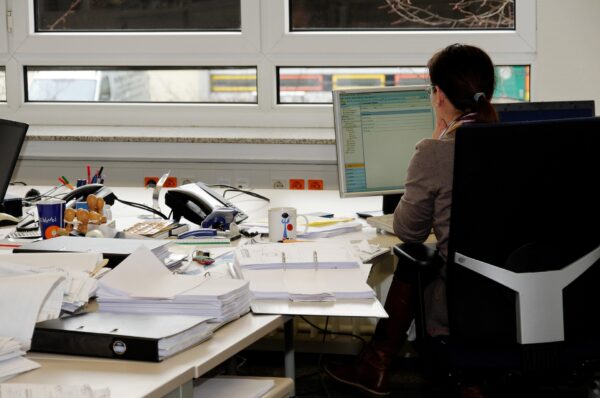The tech giant’s latest Work Trend Index, which was released earlier this week, says 2025 will mark the birth of what it calls the ‘Frontier Firm’ in which humans and AI agents will work together as a team in a company.
Microsoft says its index draws on feedback from 31,000 workers across 31 countries including 1000 in Australia.
Lucy Debono is the Modern Work Business Director for Microsoft Australia/New Zealand and says the findings reinforce a new business reality: organisations need to look at using AI agents to support their workforce.
“Most businesses are already using AI to automate tasks but the next phase will see agents join teams as ‘digital colleagues’, taking on specific tasks such as building go-to-market plans or internal communications strategies under human supervision,” she claims.
“These agents will help boost employee skills and free them to do more meaningful work and reshape how they work.
“The final step will be seeing agents run entire business processes and workflows but the critical thing will be getting the balance right, ensuring organisations are using enough AI agents to maximise productivity, without overwhelming human employees’ capacity to oversee their decisions and provide them with the necessary direction,” Debono says.
THREE THEMES IDENTIFIED
Microsoft says the report identifies three themes:
- Buying intelligence on tap: Leaders want more productivity but employees feel stretched. In Australia, 47 percent of business leaders say productivity must increase but 79 per cent of the workforce (employees and leaders) say they do not have enough time or energy. Employees are interrupted, on average, every two minutes by meetings, emails or pings. The Microsoft Index claims that 75 per cent of business leaders in Australia are confident they’ll use agents as digital team members to expand workforce capacity in the next 18 months.
- Human-agent teams may be the future but human expertise will be essential: In Australia, 40 per cent of business leaders say they’re using AI agents to fully automate workstreams or business processes for entire teams or functions, the Index says. A third (37 per cent) of business leaders may be looking at reducing their workforce but 70 per cent are considering new AI-focused roles in the next year.
- The rise of the agent boss: By 2030, Australian business leaders expect their teams to redesign processes using AI (36 per cent), automating complex tasks (37 per cent), train AI agents (45 per cent) and manage these agents (32 per cent). Microsoft calls this shift the rise of the “agent boss” where every employee is responsible for directing human AND digital workers. While 71 per cent of business leaders are familiar with AI agents, only 31 per cent of employees say the same, a much wider gap than the global average.

Debono warns against a “dangerous” misconception that AI will replace people.
She says the reality will be that new jobs will emerge, some jobs will change and others will disappear.
“Replacing people with AI might seem efficient in the short term but it erodes resilience and innovation,” she says.
“Leaders must stop seeing this as a binary choice. It’s not AI or people – it’s both. The fact that the majority of Australian leaders intend to hire AI-focused roles in the new year is a clear sign that AI is transforming work, not eliminating it,” she said.
“What we’re seeing is that the reasons employees turn to AI over a colleague is because it’s available 24/7, it can do a task faster, and it helps with creative ideas but it’s going to take a long time before it can match the judgement of a human being. Not every business function will change at the same pace, or to the same degree.”
Debono predicts that AI workers are about to become part and parcel of every team and every workflow which could lead to a two-speed workforce.
“Closing that gap is not a tech rollout issue: it’s a leadership challenge, and a massive opportunity to support Aussie workers in their confidence and capability to leverage agentic AI,” she says.
The Index identifies three steps to becoming a Frontier Firm:
- Take on and treat digital employees like any team member: onboard them, assign them responsibilities and measure their performance.
- Set your human-agent ratio to ensure customers get a human touch where they expect it, and where judgement and high-stakes decisions rely on humans.
- Get to broad scale fast: The time for pilots alone has passed. Target high-need areas like operations, customer service, or finance and identify where AI can drive measurable impact.
“We’re not in an AI pilot phase anymore – real change requires broad adoption and activation at every level of the organisation,” De Bone says.
“If Australia moves fast to get the foundations right now, it will be setting itself up for a much more productive future, and one where employees can also enjoy having more time to focus on valuable work and less on routine decision-making,” says Debono.






